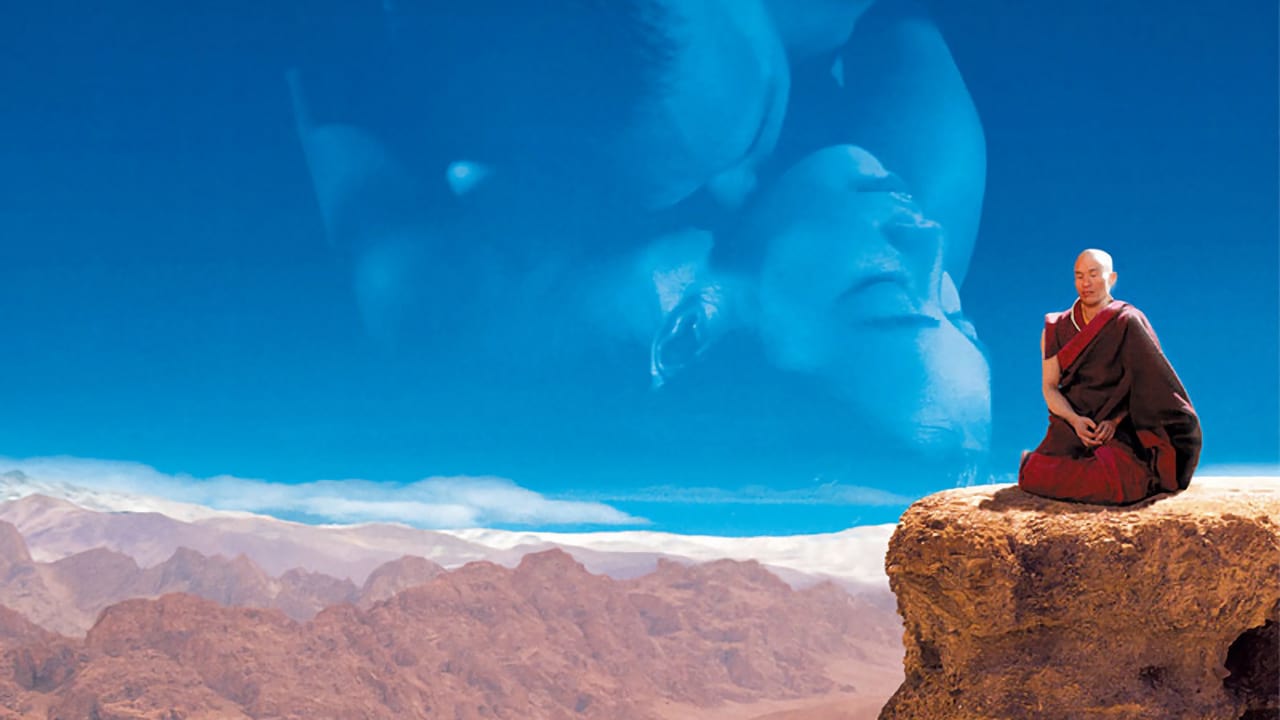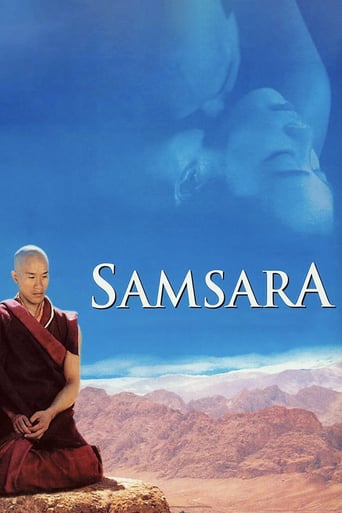Interesteg
What makes it different from others?
Titreenp
SERIOUSLY. This is what the crap Hollywood still puts out?
Softwing
Most undeservingly overhyped movie of all time??
Ortiz
Excellent and certainly provocative... If nothing else, the film is a real conversation starter.
chaos-rampant
In Buddhism there is something called 'expedient means'. You won't speak to a fisherman about emptiness in the same way as to a mathematician, the terms and metaphors change according to circumstances. This speaks of the general practicality and suppleness within Buddhism, there is no attachment to scripture, the point is to help ourselves across using whatever is at hand.Here we have a Buddhist parable on faith, a young man who's spent all his life in a monastery is nagged inside that he has been trying to cleanse himself before any dust had time to settle. In the opening scenes we see a procession of monks open up a cave where he has been meditating for three years, his hair and nails have grown, dust has settled on the frail, ascetic body. As they clean him up on the way to the monastery we see a young man's face. This is all counterpointed with the Buddha's lifestory, a prince who didn't set out on the journey until late in his 20s.'Expedient means' in this case means narrative depth is sacrificed so we can get with more clarity the moment of suffering.The consequence from a cinematic standpoint is that it's evocative enough; windswept Himalayan landscapes, textures, passage of time. But the journey is schematic, from purity in the monastery to defilement in the village, from contentment to the onset of desire. A fabled reality means that what's missing here is a fuller trajectory of a person being changed, we simply jump ahead to the crucial points of the parable. Something else from the Buddhist point of view though.Buddhism has developed a robust model about life and practical tools that actually work. Its mission is not really to converse with scientists about the beginning of the cosmos or become bogged down in epistemology about its findings. Its mission from the beginning has been to put an end to suffering; along the way a body of knowledge emerges because in Buddhism ending suffering is not an abstract ideal left to a god's grace, it is a daily practice of observing mind and self, all sorts of insights appear.There's no question that the problem of conveying an insight is mirrored across Buddhism and film. You say too much and you risk obviating the matter, too little and maybe it's not enough. Here as a deep inspection and mindful exercise the film falls short, the fabled reality puts us at a distance. But the narrative moments when desire and dissatisfaction manifest should be familiar to all and carry a simple power that is the essential Buddhist matter, seeing suffering right now. Beginner's Buddhism is some of the most powerful of all.
nihao
Pan Nalin's debut takes us on an ambitious ride through many facets of man's life. I do not like to be spoon fed. The films visuals, its art direction, its costumes, its set decoration are really TOO MUCH. TOO PERFECT. They go beyond National Geografic, and end up near an ethnic VOGUE fashion shoot. The 'starring couple' are gorgeously repellent. The female lead is a local (?) answer to 'flavor of the decade' Angelina Jolie. The secondary characters are so expertly cast that you feel manipulated. This is a movie made for Americans. It is a Californian's daydream of exotic proportions. We are transported to something Disney would have loved to concoct, had he allowed sex to creep into his book-of-rules. what the film DOES succeed in, is in giving us a worthy 'finale'. A message which, after such a rally of clichés, comes as a welcome surprise. We hear a WOMAN's view-point! We learn a lesson. "You can and will find your spiritual path amidst people, in nature...just by LIVING." it is not necessary (or healthy) to retire to a temple, as a yogi, or a monk, in order to fulfill your spiritual aspirations. So, it comes as a pity that such a good message should be served up with cynical, glossy manipulation by the director. Bertolucci gave us a typically Italian visual overkill with 'Little Buddha', but Pan Nalin just couldn't resist giving the Indian Tourist Board a brisk business boost. All I felt is..."Oh God! More hordes of tourists will be squirming at home, desiring a slice of all that exotic, stylish Nepalese decor. More authentic plates, mirrors, instruments etc. will be sold off to N.Y. lawyers' wives for good $$$.... and , goodbye to what little is left of this wonderful corner of the planet.!" And Pan Nalin is , no doubt wondering how to pay his Mulholland Drive rent. His next film may give us the answer.
mk-148
This movie is merely a postcard for the Himalaya. Ladakh is a beautiful place which is currently spoiled by tourism. This movie shows it as an exotic paradise for monks, but has nothing to do with any life on this earth. the seducing concept 'the monks who breaks his vow for the worldly life' sounds like an appealing advertisement concept, to please the western audience in search of some wise spiritual adventure... How can one base a movie, a 'story', to express a message. It's so obvious, and doesn't give any space to the audience ; perhaps the director thinks most of the people are dumb and need a lesson about life. When I see that, I'm just feeling insulted, and sad to see all this money spoiled... The director didn"t take act of the responsibility that he had by deciding to build up this exotic story which gives a wrong impression of what is buddhism, Ladakh and being a monk. If at least there was an artistic interest, a cinematic point of view, but here, nothing, no trace of cinema, only a photographed story... To give an example of a movie which a complete mind-blowing movie experience, I think the movie 'Why did Bodhidharma leave for the east ?" gives it with a huge respect to its audience.
cmiller-38
The monk leaves the 'comforts' and 'confines' of a cave of dark Buddist spiritism to find peace and 'enlightenment' elsewhere. He forms a family. How could he cheat the beautiful Pema he 'married'? That is the deception of sexual desire. It cannot be fulfilled when lust grows in the heart. It is better to marry than to burn with desire, but make sure you control the flame. The monk's years of discipline seem to be snapped like a straw. We see to much of the intimate scenes. Why not focus more on the beautiful natural scenery of the landscape? Why see naked flesh rolling, licking and twirling around like some cheap porno flick? It ruins the movie for me. I do like to explore other cultures and see their way of life in a setting not like mine own. The monk also loses his anger and attacks his enemies. One can be left with a hopeless feeling of angst and regret that he has no way to find forgiveness or healing for breaking the spiritual laws of Christ that should govern our lives.

